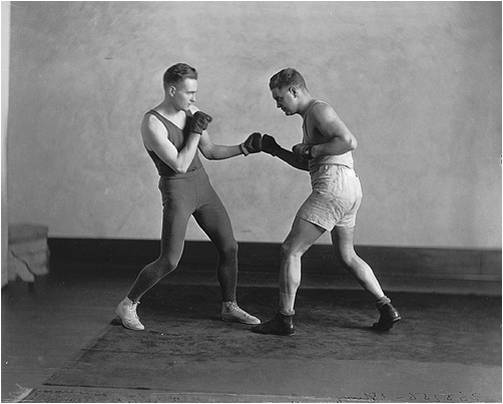 PR folk and journalists often scuffle. But that's just not going to help either side.
PR folk and journalists often scuffle. But that's just not going to help either side.
The sound of a deep sigh and my head hitting the keyboard is all that could be heard yesterday as I read yet another tweet from a journalist having a dig at PRs.
“Why do PRs put everything three times in a release, I don’t need telling three times”. Now this was quite tame, there are some journalists, I name no names, who seem to embrace PR bashing on Twitter as a way of expelling their inner angst and frustration. Those tweets can get downright unpleasant.
Normally I will seethe quietly about these kind of tweets, too cautious to say anything back in case it sparks an unpleasant Twitter scene. This time, probably because I am a coward and I know this journalist is quite nice, I decided to reply. I tweeted back suggesting that the press release was just badly written. The journalist replied saying possibly, or just a misguided formula that PRs are taught in training. She added that is was very irritating.
A few seconds later another tweet from her, she had obviously wondered who on earth I was and spotted I was ‘in the trade’ as she put it. ‘Presumably you keep yours snappy? Say it once without gush and then stop?’
I responded ‘Of course, *nervous face* but I do listen when journalists say something annoys them’.
For me anyway, PR is not sales and it is not marketing. It is Public Relations, building a relationship with the many different sectors of the public that you want to interact with. And this is the key word here, interact. I don’t believe in just pushing messages out, I want to engage with people and for journalists in particular, ensure I am working with them to give them the information they need.
The relationship between national journalists and PR is a tricky one, they don’t like to admit it very often but they do need us. More than ever, many media organisations are operating on a shoestring budget and skeleton staff. Certainly in my role, I am talking to academics every day and scouring our departments for research stories. That is something that journalists do not always have time to do as they are asked to do more work with less resources.
If journalists need an expert voice for a story and don’t know where to start, I can tell them the best person to speak to and give them contact numbers in the same time it would take them to exhale sadly and bang their head on the keyboard a few times.
Of course, it works both ways because we also need them. We need them to cover our stories so we can appease our masters with end of month reports and press coverage logs. But it has to be a relationship of sorts and some journalists need to drop the snobbish attitude towards PR.
There are many of us out there who have trained as PR and communications professionals (many of us have also trained and worked as journalists) and we are making an effort to build relationships and understand what our various publics need from us.
Yes there may be a few bad apples, but I am not ready to dismiss all journalists as unpleasant Twitter PR beaters, so I hope journalists will not dismiss everyone in PR.
Kelly Parkes-Harrison is Press and Communications Manager at the University of Warwick
